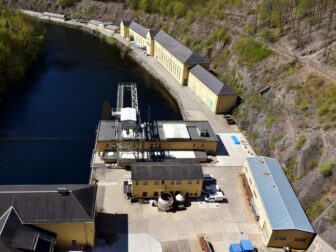Tag - iot devices for water management
Smart Water Management: Leveraging IoT Devices for Efficient Water Usage
Smart Water Management: Leveraging IoT Devices for Efficient Water Usage
In an era where water scarcity is becoming an increasingly pressing issue, the integration of Internet of Things (IoT) devices into water management systems presents a promising solution to ensure sustainability and efficiency. IoT devices in water management, ranging from smart sensors to advanced control systems, are revolutionizing how we monitor, control, and conserve our most precious resource.
The implementation of IoT technologies in water management begins with the deployment of smart sensors. These sensors are capable of monitoring a myriad of parameters including water quality, temperature, pressure, and flow rate. They are strategically placed throughout water distribution systems, in agricultural fields, and even within residential water networks. The data collected by these sensors provide real-time insights, which are critical for making informed decisions about water usage and detecting potential problems before they escalate.
One of the most significant advantages of IoT devices in water management is their ability to detect leaks and prevent water waste. Smart sensors can quickly identify anomalies in water flow, indicating potential leaks. Once detected, IoT systems can trigger immediate actions such as shutting off water valves or alerting maintenance personnel to address the issue. This rapid response not only saves water but also reduces the risk of water damage and associated repair costs.
Another important application of IoT in water management is in irrigation. Precision agriculture utilizes IoT devices to tailor watering schedules and amounts to the specific needs of plants. By taking into account factors such as soil moisture, weather forecasts, and plant types, smart irrigation systems can optimize water usage, thereby conserving water and boosting crop yields. This technology is particularly valuable in regions with limited water resources, where efficient water use is crucial for sustainability.
IoT devices also play a key role in water conservation efforts in urban environments. Smart meters, for instance, provide households and businesses with detailed insights into their water consumption patterns. This transparency encourages users to adopt more water-efficient behaviors and appliances, leading to significant reductions in water waste. Cities can further leverage this data to develop targeted conservation programs and policies, fostering a culture of responsible water use.
In addition to conservation, IoT technologies ensure the safety and quality of water supplies. Sensors continuously monitor for contaminants and changes in water composition, ensuring that any potential health hazards are swiftly identified and addressed. This real-time monitoring is indispensable for maintaining public health and trust in municipal water services.
Furthermore, IoT-based water management systems offer the potential for enhanced disaster preparedness. By analyzing data from various sources, these systems can predict and respond to water-related disasters such as floods or droughts. For instance, IoT-enabled water level sensors can provide advanced warnings of potential flooding, allowing for earlier evacuations and more effective emergency responses.
The integration of IoT devices into water management is not without its challenges. Concerns related to data security, privacy, and the need for robust technological infrastructure must be addressed to fully harness the benefits of IoT. Nonetheless, the potential of IoT devices to transform water management practices is vast. They enable more precise control, minimize waste, and contribute to the sustainability of water resources.
As we continue to face the challenges of a growing population and a changing climate, it is clear that IoT devices will be at the forefront of innovative solutions for water management. These smart technologies not only provide immediate benefits in terms of conservation and efficiency but also pave the way for a more resilient and sustainable future.
